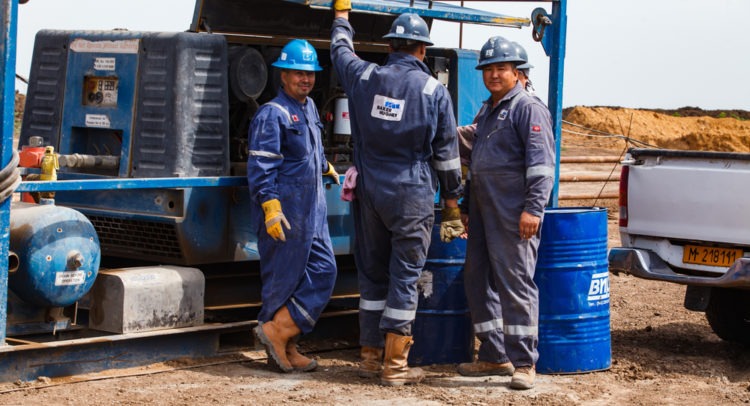Baker Hughes announced the acquisition of Compact Carbon Capture (3C), a pioneer in carbon technology solutions, as the oil field company advances its low-carbon services strategy.
Confident Investing Starts Here:
- Easily unpack a company's performance with TipRanks' new KPI Data for smart investment decisions
- Receive undervalued, market resilient stocks right to your inbox with TipRanks' Smart Value Newsletter
Financial terms of the deal weren’t disclosed. Baker Hughes (BKR) said the the acquisition is part of its strategy for an energy transition by providing decarbonization solutions for carbon-intensive industries, including oil and gas and broader industrial operations. The oil field support services company offers technical services to all segments of the oil industry, upstream, midstream, and downstream. As part of the deal agreement, Baker Hughes will accelerate the development of 3C’s technology for its commercial deployment to customers globally.
Baker Hughes said that the advancement of carbon capture technology solutions is critical for the additional CO2 emissions reduction needed to meet global 2050 climate targets. With that in mind, carbon capture technology is among the most viable decarbonization solution for both retrofitting existing assets as well as for greenfield projects, the company added. 3C’s technology can address CO2 capture from different emission sources for the decarbonization of customers’ operations.
“The addition of 3C to our energy technology portfolio complements our strategy, technology and manufacturing strengths in the area of carbon capture,” said Baker Hughes CEO Lorenzo Simonelli. “We are positioning our portfolio for new energy frontiers, and we believe there will be strong growth potential of carbon capture for both industrial applications and oil and gas projects. By incubating 3C’s technology, we can develop a roadmap to provide one of the industry’s lowest cost per ton carbon capture solutions.”
Baker Hughes disclosed that the deal includes all intellectual property, personnel and commercial agreements.
The deal comes as the company’s third-quarter results released last month, showed that operations have been negatively impacted by pandemic-led weakness in demand and a decline in oil and gas prices, which have caused surplus production and supply. Specifically, Baker Hughes reported revenues of $5.05 billion in 3Q which surpassed the Street consensus of $4.78 billion. Adjusted EPS of $0.04 came in-line with analysts’ forecasts. The company’s top and bottom line still recorded a significant year-over-year decline of 14% and 81%, respectively.
BKR shares, which have seen some recovery advancing 23% over the past month, are still down 38% from the start of the year. The company offers a 3.4% dividend yield. (See BKR stock analysis on TipRanks).
RBC Capital analyst Kurt Hallead recently reiterated a Buy rating on the stock with a $20 price target (26% upside potential), as he is optimistic about BKR’s ability to execute its energy transition strategy.
“BKR’s strategy is to shed its oil services skin and transition into a global Energy Technology company. As many industries aggressively pursue carbon reduction targets and increase spend on renewable energy, BKR’s plan is to lever its technology portfolio and position its core businesses for new frontiers, notably carbon capture, hydrogen and energy storage,” Hallead wrote in a note to investors. “In our opinion, pivoting to Energy Technology from Oil Services will be key to maintaining relevancy with investors, ensuring long-term viability with customers and outperforming its peers.”
The rest of the Street is cautiously optimistic on the stock. The Moderate Buy analyst consensus is based on 4 Buys versus 2 Holds. Meanwhile, the average price target of $20.33 implies upside potential of about 28% to current levels.

Related News:
Diamondback Energy Surges 6% In Print Buildup; Reports Beat
Magellan Tops 3Q Profit As Refined Products Demand Improves
Skyworks Sees Upbeat 2021 Guidance After A Blowout 4Q
Looking for a trading platform? Check out TipRanks' Best Online Brokers , and find the ideal broker for your trades.
Report an Issue









